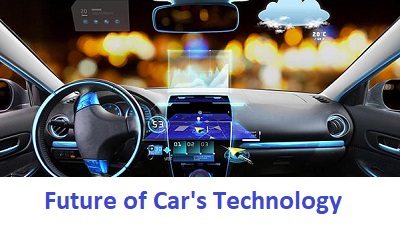Contents
The 2010s will go down in history as one of the greatest decades when it comes to automotive tech, as it saw the rise of the virtual ride-hailing industry, level 2 autonomy, over-the-air updates, and most of all, the electric vehicle industry going mainstream. But many experts believe that the 2020s could be even better, with both traditional and upcoming automakers hard at work trying to come up with the next big thing. The electrification of vehicles, widespread automation, and the increased connectivity of both vehicles and society are expected to shake up the automotive tech industry in a big way, changing everything from the way cars look, to how people spend their time inside them, and how they move from point A to point B.
Futuristic designs
Car designs will look very different in the 2020s than they did 10 years ago. You’ve probably seen the designs of the Tesla Cybertruck or Mercedes Vision EQS and thought that they look like something straight out of a science fiction movie, but by the end of the decade, these will be considered normal-looking cars. From the outside, the air intakes and front grills that cool combustion engines will be obsolete, while side mirrors will be permanently replaced with cameras and sensors. The interiors will be a lot more flexible, allowing for customization of lighting, color, layout and privacy at the touch of a button or through voice control. Many vehicles will also come with augmented reality systems, which will be used to project computer-generated visualizations onto windshields.
The transformation of the car-buying process
The car buying process is changing thanks to technologies that aim to make it easier, faster and free from too many middlemen. Dealerships could become a thing of the past, thanks to technologies that enable consumers to buy cars without even leaving their couch. It all started in the 2010s with the rise of websites that allow consumers to compare vehicles without going to a dealership. Soon, people will be able to view and test drive their cars using virtual reality, saving them from trips to the dealerships altogether. The purchase process will also move online, with companies like Tesla already leading the way.
The rise of fully self-driving vehicles
While self-driving cars were expected to be here by now, things have not quite gone as planned. Self-driving engineers have been recalibrating expectations and pushing timelines back as a result of various challenges. For example, General Motors had pledged to have self-driving taxis on the roads by 2020 but has been unable to make it happen. Meanwhile, Tesla failed to deliver on its promise to have 1 million self-driving ‘robotaxis’ by the end of 2019, but it’s still hopeful to deliver by 2021. Similarly, Daimler has backed away from a pledge to put 10,000 autonomous taxis on the streets by 2021. To date, the only company taking passengers in fully self-driving vehicles is Google’s Waymo, which has become the presumed front-runner in the sector. With more developments in edge computing, vehicle-to-vehicle communication, and vehicle-to-infrastructure communication, autonomous vehicles could outnumber traditional vehicles by the end of the decade.





